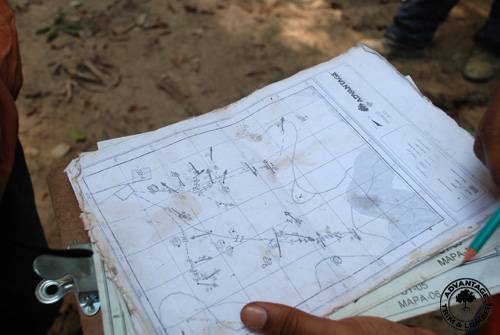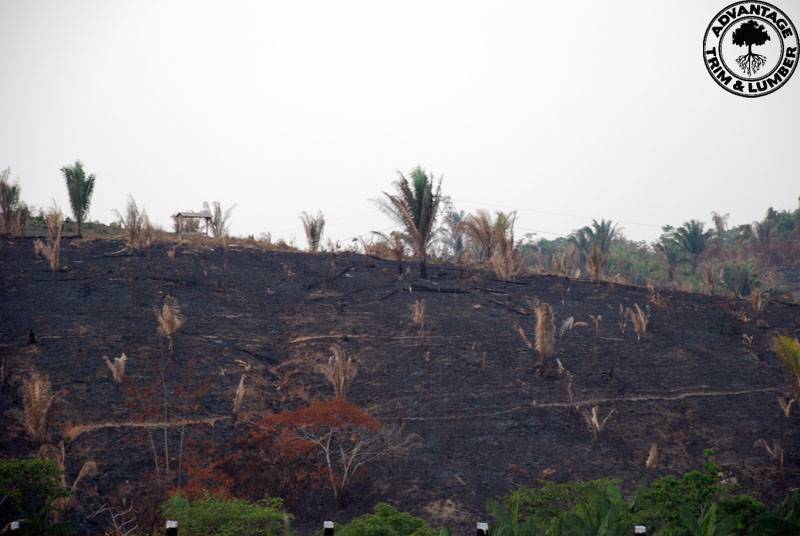It’s not enough to say that you’re product is eco-friendly. People want, and deserve, proof. However, it is getting harder for all of us to cut through the marketing hype to see products for what they really are, not what you are told they are. So….with that said, what does that have to do with decking?
We received a phone call the other day from someone who was fed lies. They were told by someone trying to sell them thousands of dollars in composite decking that “anyone who buys hardwood decking from countries like Brazil are helping kill off the rain forest. ” This person was shopping around and asked us point blank, “How can I be sure that the hardwood you sell is really eco-friendly?”
At Advantage, we LOVE getting questions like this. Here’s our response:
Dear Ms. Concerned Customer,
Thank you for your question. At Advantage Trim & Lumber Co., Inc. we appreciate questions like yours because it gives us the opportunity to shed some light on some surprising truths as well as share with you what makes the products we sell compliant with all international trade laws.
The first thing you need to know is that, in countries like Brazil, the forests are heavily regulated. The land, as you might imagine is extremely valuable. We would argue that the land in those countries might be worth more long term than any oil-field. How? Well, for starters, the trees that grow in places like the rain forest give us something an oil-field cannot, oxygen. Trees have been mankind’s go-to resource for thousands of years. You name it, whether it’s for shelter, food, protection, or the air we breathe, trees are a treasured resource that must always be protected.
This is why, when informed us about this misinformation, we had to respond.
The lumber we buy and mill in countries like Brazil are controlled by the regulatory body known as IBAMA. This is agency is run by the Brazilian government. They pretty much control the lumber industry in that country. I say “pretty much” because each state in Brazil also has their own state-run agencies. For instance in the Brazilian state of Para, the agency that monitors and regulates lumber mills is known as SEMA. You can find many states that actually create and enforce more stringent laws to control the production of lumber in their respective states.

The attached picture is from a recent trip to a managed forest in South America. The person holding the clipboard is instructing the mill not just which trees can be felled, but the actual direction that they have to fall. The meticulous nature of these plans ensure that the growth around those trees get to prosper and new trees get to grow in its place. A great number of those trees on that management plan are what’s known as “wolf trees” or “mother trees”. Basically, those trees have hollowed out from the inside, and don’t produce seeds. Their presence in the rainforest actually depletes resources from surrounding plants and foliage. We have a post on our website that details more information about how felling these wolf trees is a great sustainable forestry practice.
Also, contrary to popular belief, most exotic hardwoods don’t originate from the rainforest; they are grown and produced in specially designated and monitored non-rainforest areas. The great majority of the wood we purchase comes from those protected areas.
Lumber companies are not oil companies. Our company doesn’t pillage the land and leave a husk of the earth in our wake. It makes sound economic sense for us to see the forest survive and thrive. In addition, it also makes good economic sense for trees to be harvested for lumber. Remember, land is a valuable asset. If the demand for trees is steady, landowners have every reason to keep the land as it is. What’s the alternative?

This picture shows what happens when a landowner decides to make more money raising cattle for leather goods and hamburgers instead of cultivating trees. If no value is placed on the forest, landowners have no economic incentive. Likewise, you might also be shocked to learn (as were we), that in Brazil it’s easier to burn a forest down for cattle of soy farming than it is to get a permit to cut down a tree. That’s right. You don’t need a permit to burn a forest, but you do to cut down a tree. The money that comes from the agriculture industry is flooding countries in South America at a furious pace. So much so that people still falsely assume that harvesting lumber for decking and flooring is the primary cause of deforestation in Brazil and other South American nations.
In conclusion, know that the wood decking we sell here at Advantage only comes from forests that are sustainably managed and heavily regulated. One final note, another reason you benefit from buying hardwood decking instead of composite decking materials is that you’re also choosing quality over hype. Hardwoods like Tigerwood, Cumaru, and Ipe are proven materials that, thanks to sustainable forestry, also produce a higher grade material that has enduring qualities.
We hope that this information helps shed light on a very important topic for all of us. At the very least, we also hope that it cuts through the misinformation you previously received.
Thank you again for your inquiry.
Best regards,
Advantage Trim & Lumber
1 thought on “What Makes our Hardwood Eco-Friendly?”